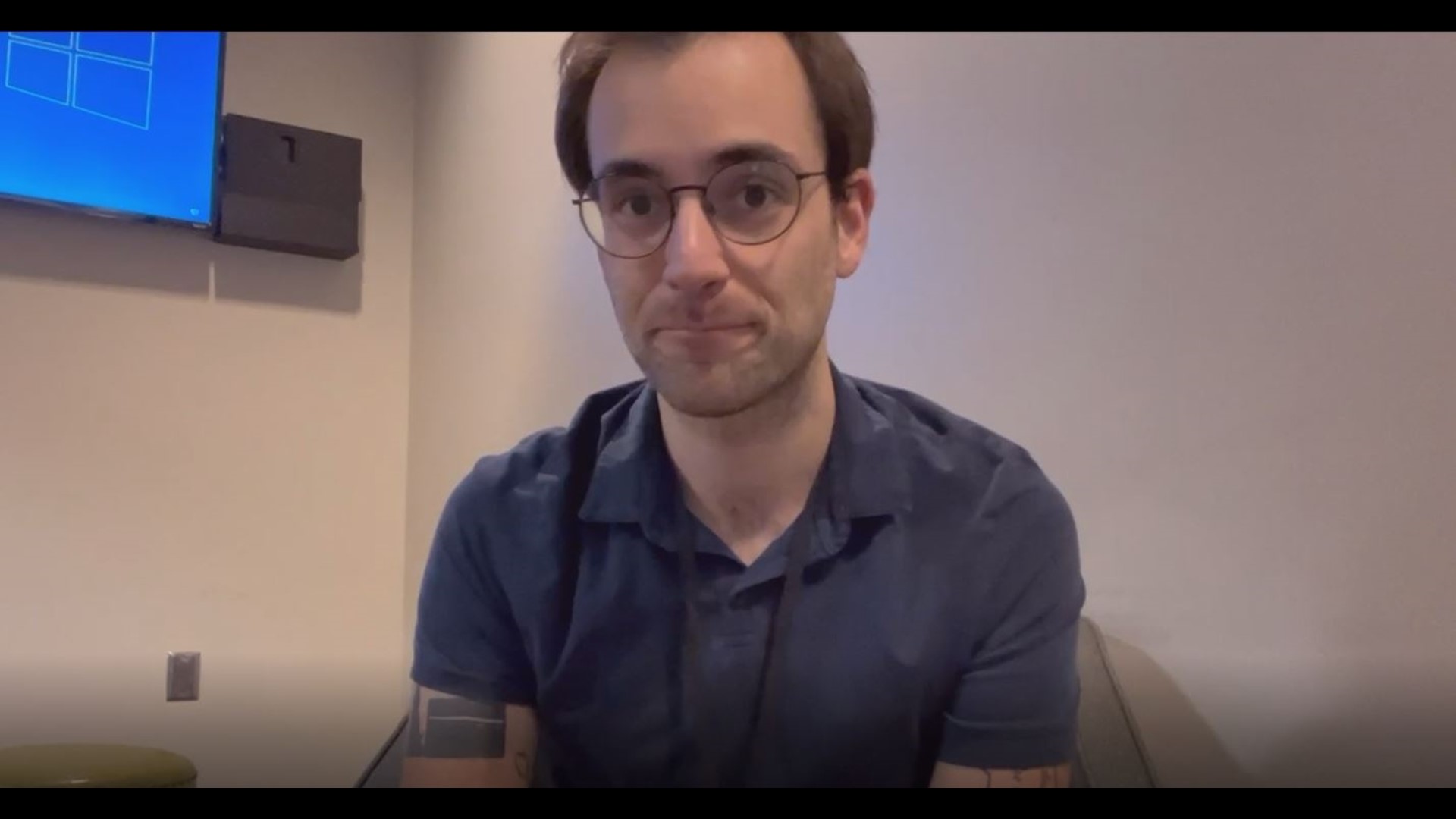'I'm very proud': KENS 5 team speaks about National Hispanic Heritage Month
At KENS 5 our team members share their views about identifying with their Hispanic/Latino culture.

Every year, San Antonio celebrates National Hispanic Heritage Month beginning September 15 - October 15. The month remembers the history, cultures and contributions of American citizens whose ancestors came from Spain, Mexico, the Caribbean, Central and South America.
At KENS 5 our team members share their views about identifying with their Hispanic/Latino heritage, how it influences their career, and why celebrating National Hispanic Heritage Month is important.
Below you will also find facts about San Antonio's deep roots to the Hispanic/Latino culture.
Significance behind the month How did it begin?
Hispanic Heritage Month began as Hispanic Heritage Week in 1968 by President Lyndon Johnson. The week then expanded to a full month and was enacted into law by President Ronald Reagan in 1988, according to the Hispanic Heritage Month website.
The month begins on September 15 also known as the anniversary of independence for Costa Rica, El Salvador, Guatemala, Honduras and Nicaragua. Mexico celebrates their independence day on September 16 and Chile on September 18.
Hispanic/Latino/Latina/Latinx What's the difference?
Some people have drawn distinctions from the terms Hispanic and Latino as both are not universally embraced by the population that has been labeled, according to a 2021 Pew Research study.
Hispanic - Represents someone who has ancestors from a Spanish-speaking territory or country. Data was collected on this group in 1997.
Latino - Refers to a person from Latin America or is from Latin American descent. The includes the countries of Portugal and Brazil that are not included in the term Hispanic since they speak Portuguese and not Spanish.
Latino was also added as an option on government documents in 1997.
Latinx - A term that has been used in recent years as an alternative to Hispanic and Latino but has generated debate. Some say it ignores the Spanish language which is gendered but others see it as an inclusive term that recognizes the LGBTQ community.
Dates back to the 1600s Latino history in San Antonio
The city of San Antonio has deep roots to Spain when the Spanish explorers explored the land in 1691.
In fact, the city's name is related to Franciscan Mission San Antonio de Valero when a Spanish colonial settlement began in 1718, later known as The Alamo.
Acequias - One of the most significant accomplishments of Spanish colonial residents were placed at the missions that provided irrigation and drinking water for their small communities. Anyone who visits the missions today can view these historic and elaborate acequias comprised of dams, gates and irrigation canals.
Missions - Five Spanish colonial missions are found throughout the city. Mission Concepción, Mission San José, Mission San Juan, Mission Espada, and Mission Alamo. The missions were a place where the native people of South Texas foreswore their traditional life to become Spanish, accepting a new religion and agrarian lifestyle in hopes of survival, according to the National Park Service website.

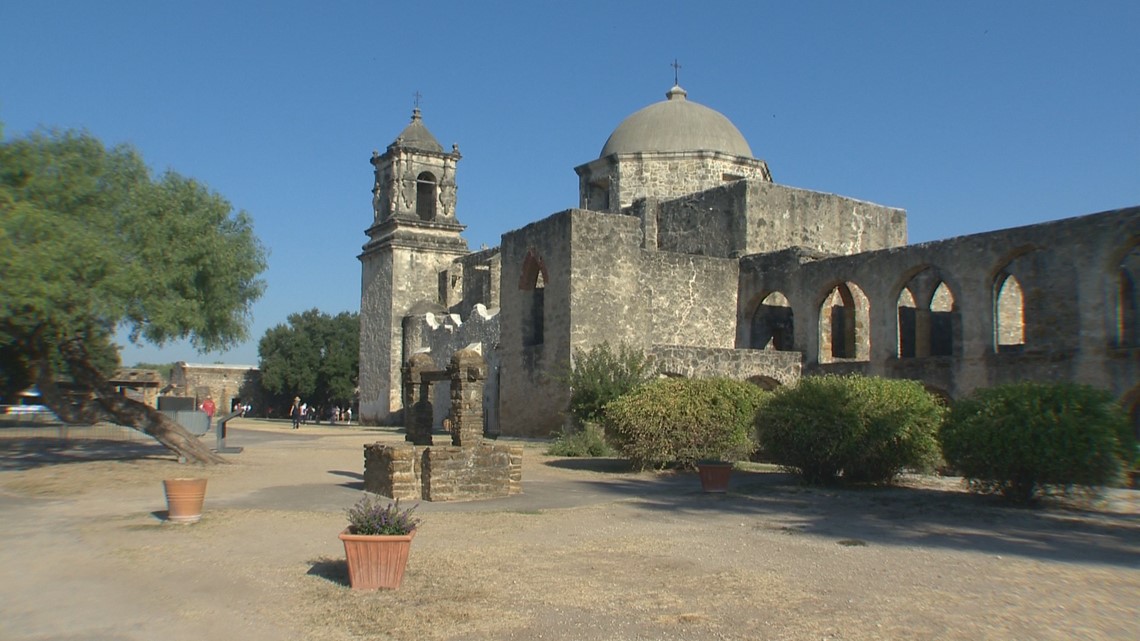
La Villita Historic District - Roots going back to the 1800s is San Antonio's first neighborhood also known as "little village." The site is listed on the National Register of Historic Places.
La Villita holds many events throughout the year especially Fiesta San Antonio which began in 1891 as a parade event to honor the memory of the heroes who fought at the Alamo and in the Battle of San Jacinto.

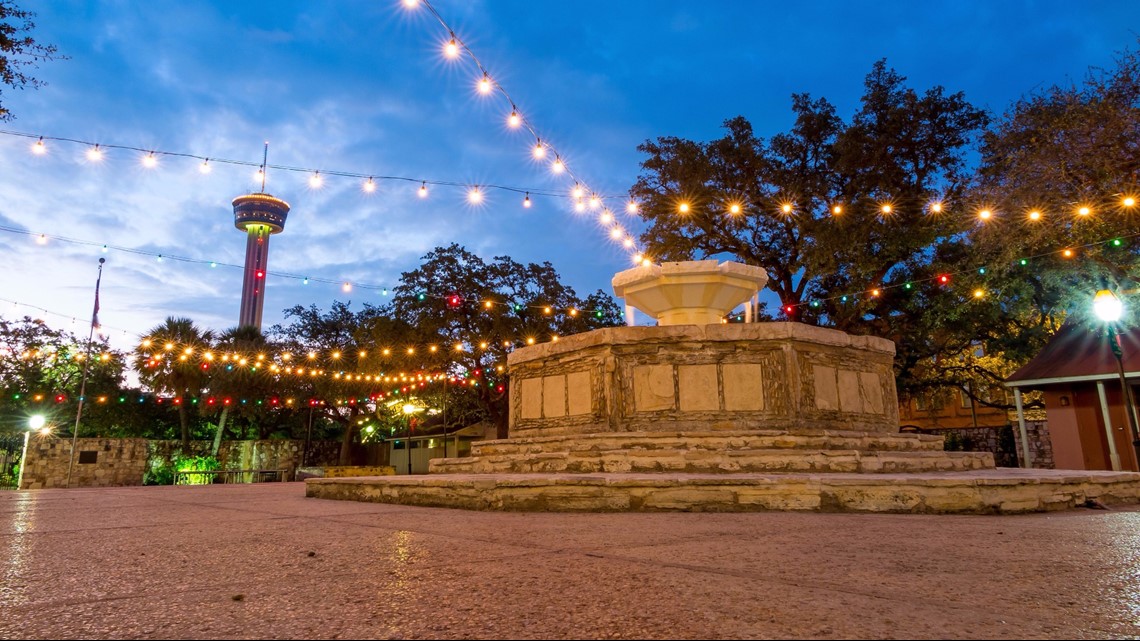
Mexico and Texas ties: Mexico didn't want to stay under Spanish rule and the launch for Mexico's struggle for independence is known as on Diez y Seis de Septiembre or September 16. The rebellion against the Spanish government began in 1810 and against Spanish rule in 1811 with the Casas Revolt that actually took shape in San Antonio.
Texas then broke away from Mexico when Texian and Tejano forces defeated Santa Anna's army at the Battle of San Jacinto in 1836, same year as the Battle of the Alamo.
Evening News Anchor Isis Romero


Background: Her family has lived in South Texas for generations, dating back to before Texas was part of the United States.
Influences: As a journalist, she says her heritage has shaped her approach in many aspects of her job. Whether it's pronouncing Spanish names in Spanish, or being able to relate to segments of the community who share her culture. She also says her background plays a role in her daily work.
"Hispanic Heritage Month is a chance to teach others about our culture, our contributions, and celebrate our history. However, at my house, every month is Hispanic Heritage Month! I carry my culture with me always, and look for opportunities throughout the year to share it with others."
Isis says she identifies as Tejana, Chicana, Latina, and Hispanic.
Great Day SA Host Roma Villavicencio

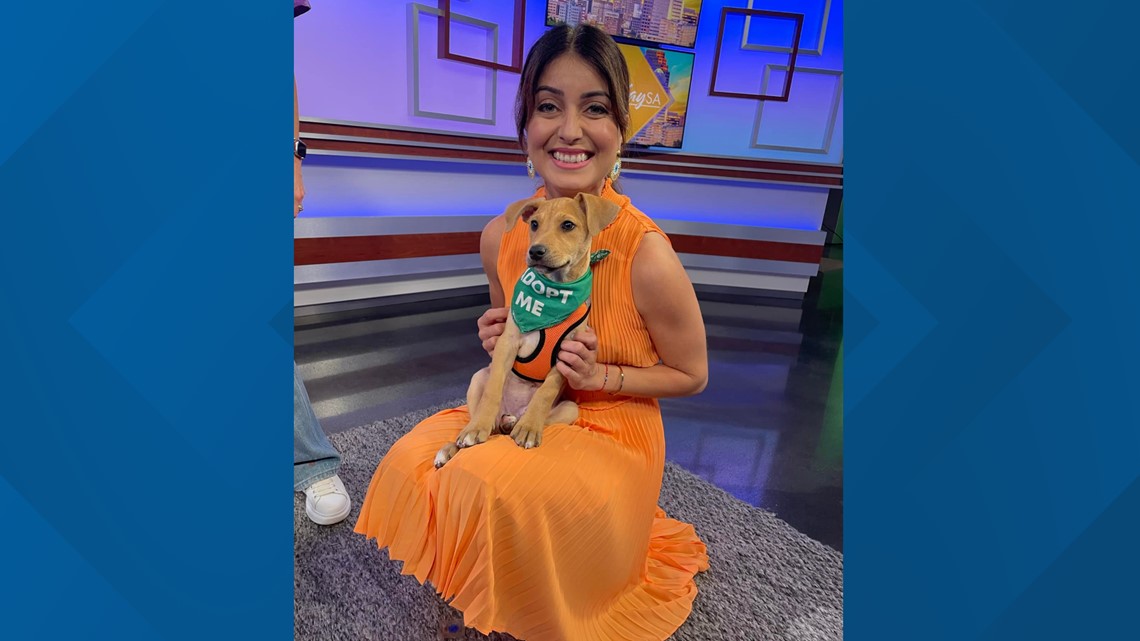
Background: Her mother and father were born and raised in Mexico. Her father is from Mexico City and mother from Jalisco. Roma was born in San Francisco, California then moved and grew up in Anaheim Hills.
Spanish was her first language and she attended a bi-lingual school. When she began second grade in Anaheim Hills she didn't read or write in English.
"I’ve experienced the stereotypical judgments and opinions people have against Mexicans. My mom used to clean houses for a living and people treated her so poorly. My dad was a blue collar worker and was taken advantage of all the time because of his thick accent," she says.
Influences: Growing up Roma often visited Mexico with her parents to see her grandmas. She also enjoyed delicious authentic meals cooked by her mom while celebrating family traditions, especially during the holidays.
Roma started a hat business and ensured her artisans are from Mexico in honor of her mother, who passed away nearly 16 years ago. Since then Roma says she's even more passionate and dedicated to exploring Mexico.
"It is so important to me to represent everything my mother and father come from. They have instilled love and respect in my heart and I hope to share that with everyone I come across," she says.
Anchor/Reporter Audrey Castoreno
Background: Audrey describes growing up in a Hispanic household and practicing Hispanic traditions growing up such as dancing ballet folklórico as a child and celebrating her 15th birthday with a quinceañera.
"I'm very proud to be Hispanic/Latino because I think it really does affect you in every area of your lifestyle."
Influence: She says working in San Antonio she enjoys producing stories about the Hispanic community. She also understands the important role she has being a Hispanic journalist/anchor saying she "holds herself to a very high standard".
"We have a huge Hispanic and Latino population here in San Antonio. And even with our Together We Rise series, I feel like I've done some stories about Spanish and it being stolen from older generations and I feel like I really connected with that. Because I heard those stories of my parents and my grandparents were not allowed to speak Spanish in school or out in public or being pushed to the back of the bus as well. Those things also happened to the Hispanic/Latino community here in South Texas and much of the country."
Importance: Audrey says National Hispanic Heritage Month is important to celebrate because she says Hispanics/Latinos have done a lot for South Texas and our country.
"We have some great Latino-owned businesses, some great entrepreneurs out there, so people doing big things in the Latino community."
Producer Olivia Villaloboz

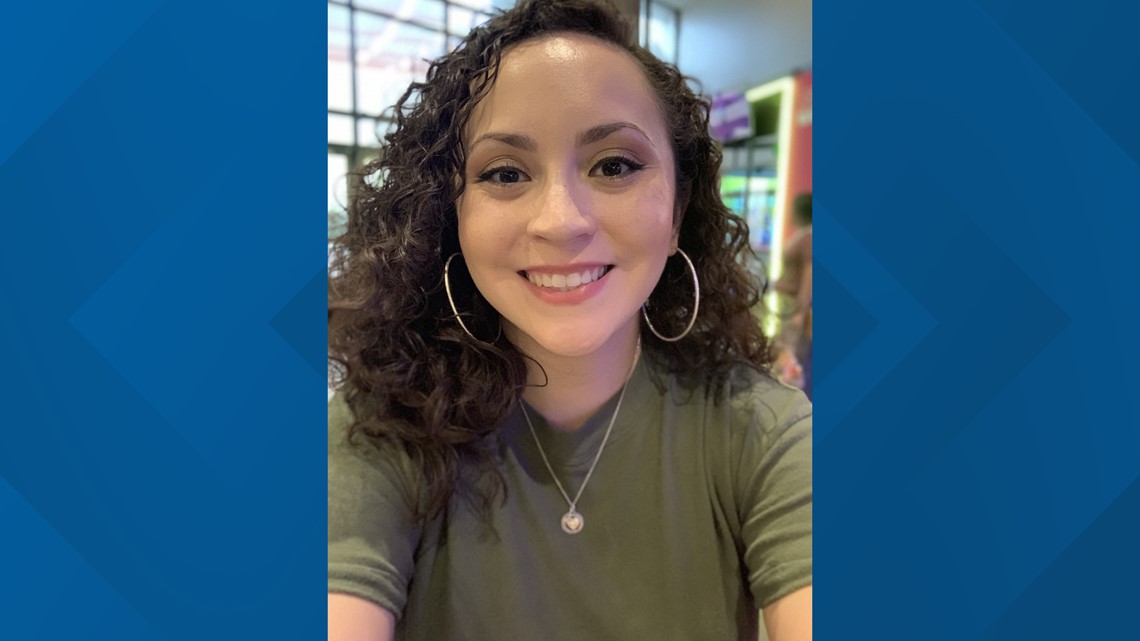
Background: Olivia is a fourth generation Tejana and says her family instilled some of the best parts of their culture in her. Olivia says growing up she embraced her Tejana culture from the smallest details from her Chucks, hoop earrings, love for Selena, food and cariño.
"I will forever cherish everything my family has taught me because without them I would not be the woman I am today, a proud Latina," she says."

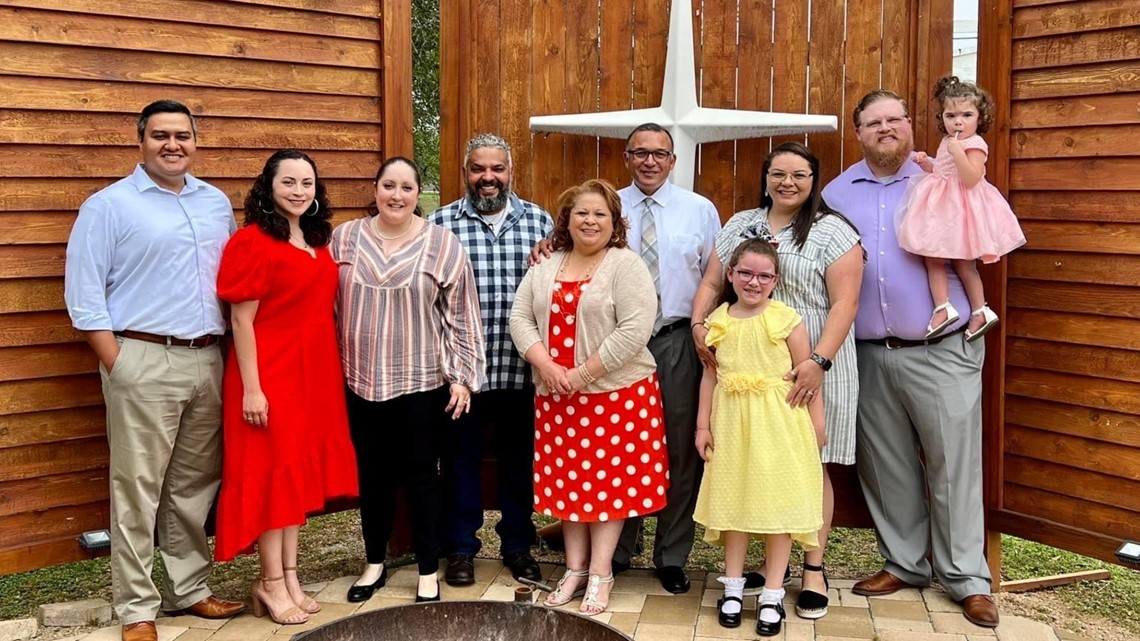
Influence: As a Hispanic journalist, she feels it's very important to share the stories of our community. Her goal is to share the stories of hardworking families, the ones who strive to give their children a better life, the ones who push forward despite all odds and work towards success.
"We each have a story that needs to be told, but unfortunately it is not always shared."
Olivia says National Hispanic Heritage month is the time to shine. She says for the rest of the world it's once-a-year celebration but for Hispanics it's life.
"Why not show them everything we are loud and proud," she says.
Digital Producer David Lynch
Background: David was born in Chihuahua, Mexico and lived there for about two years. Spanish was his first language and identifies as a Mexican-American. He speaks about frequent trips to Mexico to visit his family and about traditions his Latina mother passed on.
"Even from a young age there was no annual family trip that I was looking forward to more."
"You can sense that there really is a sense of togetherness with your family. That's something that Latinos talk about all the time and it really can't be overstated."
Influence: David grew up overseas and says he worried about calling himself Mexican-American as he adopted to the English language and a lifestyle different from his Mexican heritage.
Now living in San Antonio David says, "there isn't one way to celebrate your Hispanic pride" and that's okay.
"Our differences are what make us unique and that's worth celebrating."
Anchor/Reporter Alicia Neaves

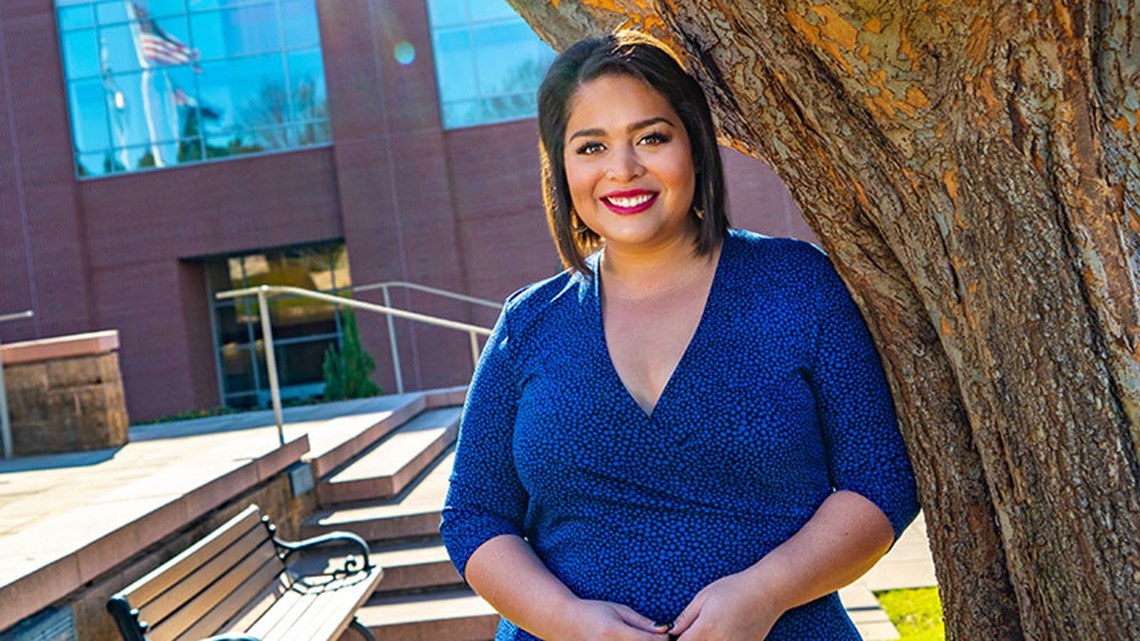
Background: Her paternal grandmother, Elvia, was born in Monterrey, Mexico. My maternal grandfather, Humberto, was born in Saltillo, Mexico. Other family members are 5th and 6th generation Texans. Alicia says although most of her ancestors are from Mexico, others trace back to Spain, France and the Canary Islands.
Memories: Growing up she says her family hosted a tamalada. This included helping her grandma, great-aunts, cousins, and mom early in the morning a few days before Christmas to make homemade tamales. In fact, the recipe was handed down by her great-grandmother, Efigenia, who was born in Mexico.
"A big part of the Hispanic culture is la familia and remaining a close-knit support for one another, she says."

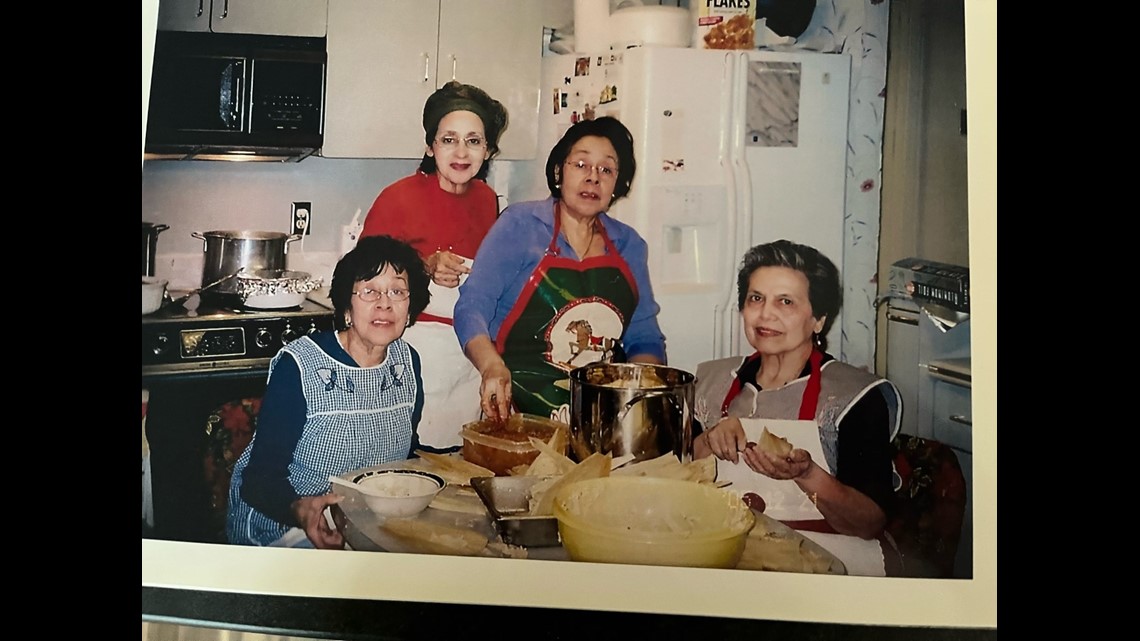
She says her grandparents lived in San Antonio on the west-side and thinks about those neighborhoods staying true to the Hispanic culture roots.
Influence: As a journalists/anchor/reporter Alicia says her Hispanic background influences her story ideas and believes her ability to speak Spanish helps her relate to members of our community. She also pronounces names of San Antonio towns, streets, buildings as rooted with their Hispanic roots.
Alicia's family has deep roots in San Antonio. Her great-grandmother's family owned a tiendita off St. Mary's Street and great-grandfather built many quality homes in the area. Alicia's Uncle Joe also served as the first elected Hispanic sheriff of Bexar County.
"Members of my family worked tirelessly in blue collar jobs to provide for their loved ones, and I understand the work ethic to achieve the American Dream. This influences my thinking in how I tell stories of the working class and how I can better empathize with the struggles people face today."

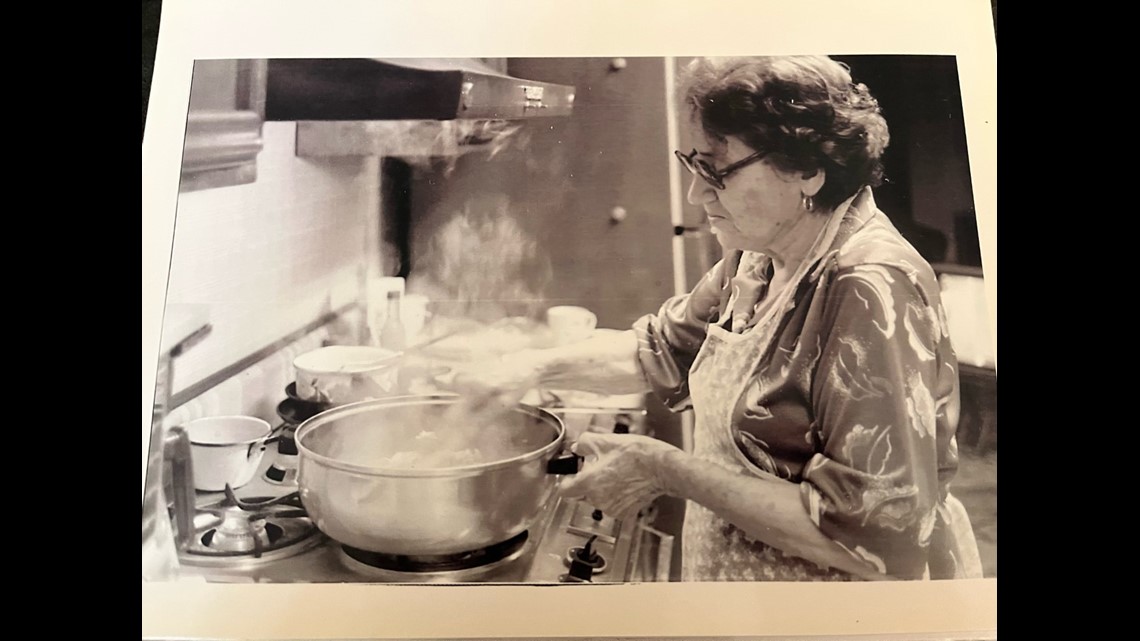
Importance: Alicia says it's important to celebrate National Hispanic Heritage Month because there's still much to learn and understand about Hispanic culture and their influence in the world.
"Much like our brothers and sisters from other cultural backgrounds, it's important to recognize the contributions of Hispanics who continue to shape this beautiful country."
Anchor Phil Anaya

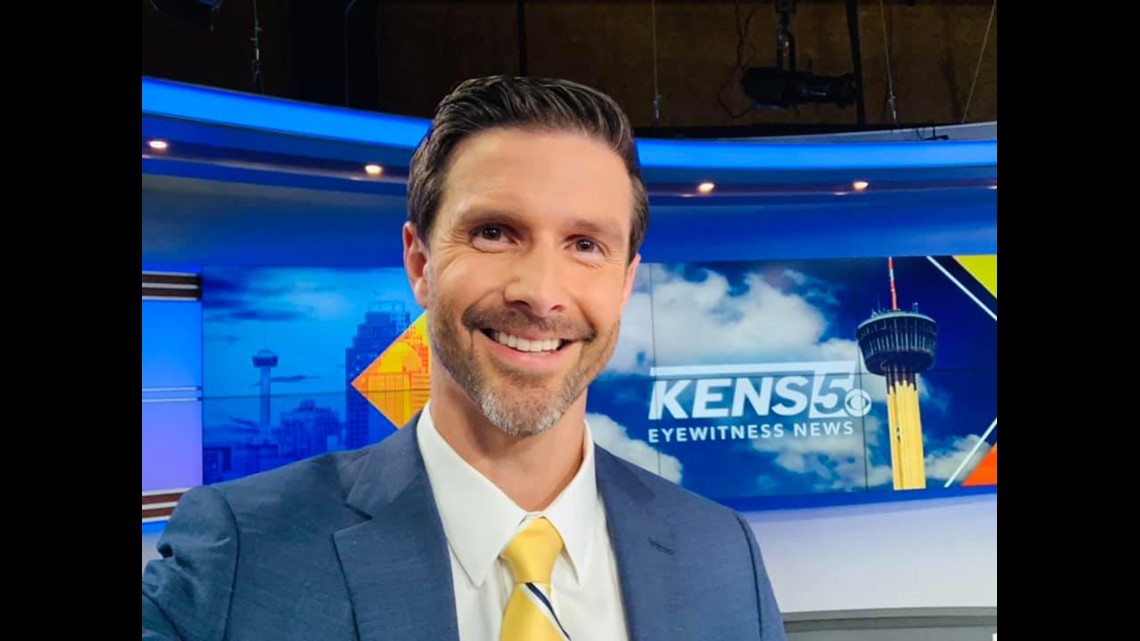
Background: Phil says much of his Hispanic heritage comes from his grandparents who passed on many traditions growing up.
His grandfather helped him as he tried learning Spanish and grandmother showed him popular dishes such as pan de polvo and tamales.
Phil grew up in southern New Mexico and says although he was raised on Mexican food, believes San Antonio dishes are different from the ones he grew up with.
Influence: Many of his grandparents' traditions Phil says he hopes to pass on to his sons as well.
"I’m very proud of my Hispanic heritage and my upbringing."



